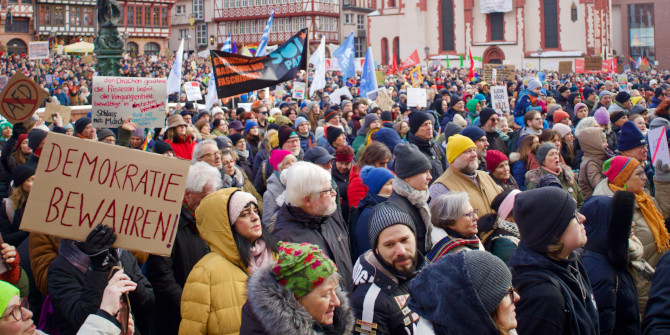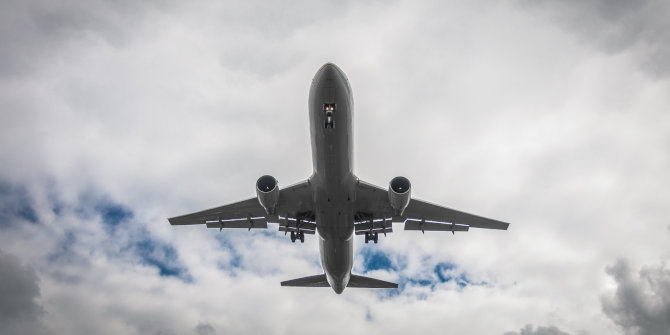On 12 June, Armenian Prime Minister Nikol Pashinyan announced Armenia would leave its military alliance with Russia under the Collective Security Treaty Organization. Taras Kuzio argues it would be naïve for the West to encourage Armenia’s exit while ignoring the potential severity of Russia’s response.
Armenian Prime Minister Nikol Pashinyan has announced that Armenia will formally withdraw from the Collective Security Treaty Organization (CSTO), the Russian-led military alliance that is often described as the Kremlin’s equivalent to NATO. He has also indicated he supports European integration, though without giving any specifics.
Pashinyan blames Russia for not intervening militarily in support of Armenia in the 2020 Second Karabakh War with Azerbaijan. He has also condemned Russia’s so-called “peacekeepers” for not protecting the Karabakh separatist enclave in 2023.
Pashinyan has said it was a mistake for Armenia to rely solely on Russia since 1991. Russian Foreign Minister Sergei Lavrov responded by saying Russia would be forced to revise its relations with Armenia as it is aligning with “Russia’s enemies”. The deterioration in relations was underlined by the fact Pashinyan did not attend Putin’s 7 May inauguration.
Armenia has now frozen its CSTO membership, is no longer contributing to its budget, is not participating in CSTO meetings, and has not sent anybody to act as one of the CSTO’s deputy secretary generals. Yet achieving an “Armexit” from the CSTO and the Eurasian Economic Union would be far from straightforward.
While Azerbaijan, Georgia and Uzbekistan withdrew from the forerunner of the CSTO in 1999, this was when Russia was ruled by the more democratic Boris Yeltsin. As the war in Ukraine demonstrates, there is little prospect of Vladimir Putin agreeing to Armenia leaving Russia’s sphere of influence.
Armenia’s links with Russia
The Kremlin has warned Armenia it cannot survive without Russia. Margarita Simonyan, the head of the Russian state broadcaster RT – who is herself Armenian but is a fervent supporter of Putin’s extreme nationalism – has accused Pashinyan of betraying Armenia and leading the Armenian people to extinction.
There remain extensive links between the two countries. Russia effectively controls Armenia’s energy sector. Moreover, nearly as many Armenians are migrant labourers in Russia as the total population of Armenia and their large remittances are a major contribution to the government’s budget.
Since Pashinyan came to power following the 2018 Armenian Revolution, he has talked up European integration while increasing economic cooperation and trade with Russia. Armenian-Russian trade is growing rather than declining. Armenia is a major re-exporter of western goods into Russia, breaking sanctions imposed by the West in the aftermath of the invasion of Ukraine. To prevent the US imposing sanctions against Armenia, the Armenian Central Bank has banned Armenian banks from using the Russian “Mir” national repayment system.
A severe response
The Kremlin’s love of conspiracy theories has led it to believe a western hand is behind the deterioration of Armenian-Russian relations. Russia has always been suspicious of “colour revolutions” of the kind that brought Pashinyan to power, believing them to be CIA-orchestrated conspiracies against Russia.
The Kremlin-controlled Russian media, which continues to have a large audience in Armenia, claims that Pashinyan was brought to power in the 2018 revolution by “globalists” and since then he has been “obediently implementing their programmes”. A further claim is that Armenia is being “dragged into the EU by Masonic lodges in the West” who are “the real masters of the European Union”.
The Kremlin would ideally like to replace Pashinyan’s government with a pro-Russian regime of the kind that existed prior to 2018. Russia supports the pro-Russian and extreme nationalistic Armenian Apostolic Church, which is opposed to reconciliation with Azerbaijan and Turkey. In May this year, Archbishop Bagrat Galstanyan led protests demanding Pashinyan’s resignation over the transfer of four border villages to Azerbaijan.
Russia’s media has supported the demands of the pro-Russian opposition, blaming Pashinyan for Armenia’s military defeats in 2020 and 2023. Russian media and pro-Kremlin military bloggers have also blamed Armenia for the withdrawal of Russia’s “peacekeepers” in April and May this year. On 24 March, Armenia blocked two TV shows by Kremlin propagandist Vladimir Solovyov and the following month ended the agreement to retransmit Russian television broadcasts to Armenia.
However, the ending of the Armenian occupation of Azerbaijani territories has led to the erosion of support for pro-Russian political forces in Armenia, who have always opposed reconciliation between the two neighbours. This, in turn, is leading to the signing of a peace treaty with Azerbaijan, and normalisation of relations with Turkey. Azerbaijan has also imprisoned Armenian-Russian oligarch Ruben Vardanyan, who was sent by the Kremlin to Karabakh as a springboard for removing Pashinyan from power.
At the same time, Pashinyan’s rhetoric on European integration will not lead to anything concrete because a hyper nationalistic and imperialistic Kremlin will never allow Armenia’s withdrawal from the CSTO and the Eurasian Economic Union.
The West is foolhardily encouraging Armenia’s exit while ignoring the potential severity of Russia’s response. As seen in Ukraine, Putin will fight to keep his neighbours from asserting themselves and escaping from Russian control.
Note: This article gives the views of the author, not the position of EUROPP – European Politics and Policy or the London School of Economics. Featured image credit: Alexandros Michailidis / Shutterstock.com




